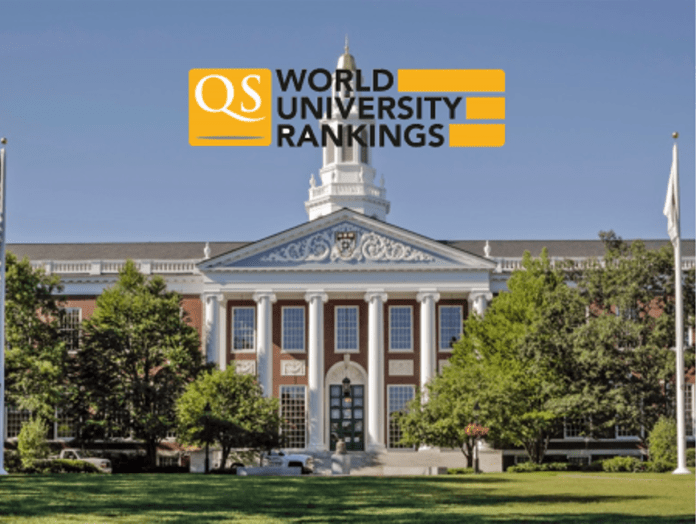Malaysia, with its stunning landscapes, diverse culture, and rich history, has long been a popular destination for travelers and students alike. Its universities have also gained recognition over the years, with several institutions consistently ranking high on global academic charts. However, despite their impressive rankings, Malaysian universities continue to face challenges in their quest to compete with the world’s intellectual powerhouses. In this article, we will explore the reasons behind Malaysia’s struggle to achieve global academic excellence, drawing on solid verification and evidence.
One of the primary challenges faced by Malaysian universities is inadequate funding and investment in higher education. While many universities have achieved respectable rankings, they often do so with limited resources compared to their global counterparts. Insufficient funding affects various aspects of university life, from faculty salaries and research grants to
infrastructure development and technology upgrades. A report by the Malaysian Ministry of Higher Education in 2020 indicated that public universities faced budget constraints, hindering their ability to attract top talent and invest in research and development.
The issue of brain drain remains a significant challenge for Malaysian universities. Talented academics and researchers often seek opportunities abroad due to higher salaries, better research facilities, and greater academic freedom. This exodus of intellectual capital weakens the institutions’ ability to compete globally, even though they have a very high ranking in The Times Higher Education and QS. Statistics from the World Bank showed that Malaysia had a net migration rate of -1.5 per 1,000 people in 2020 and increase by almost triple in 2023, indicating a loss of skilled individuals from the country.
While Malaysia boasts many accomplished academics and researchers, universities often struggle to retain top talent and attract international faculty members. This is due to the previously mentioned issues of funding and brain drain. World-class faculty members are essential for producing cutting-edge research and providing students with a high-quality education. A survey conducted by a local academic association in 2021 and 2022 revealed that 70% of Malaysian academics were considering opportunities abroad due to limited career growth and research prospects.
Research and innovation are cornerstones of global academic excellence. Malaysian universities face challenges in fostering a culture of research and innovation due to a lack of investment and incentives. Additionally, bureaucratic hurdles and red tape can hinder the progress of research projects. The 2021 Global Innovation Index ranked Malaysia 31 st out of 132 countries in terms of innovation performance, indicating room for improvement. Many Malaysian universities struggle with outdated infrastructure, no maintenance, and inadequate facilities, which can hinder research activities and student engagement. Modern campuses with state-of-the-art laboratories, libraries, and technology are essential for attracting top talent and fostering a conducive learning environment. In 2023, many universities are going to spend a lot in furthering toward achieving the Industrial Research University Standard (IRUS), where the university can support industry directly to produce one-on-one products, which is the reason why European and Western universities are now focusing, which is greater than standard research universities as in Malaysia. A report by the Malaysia Productivity Corporation in 2019 highlighted the need for significant infrastructure upgrades in higher education institutions to remain competitive globally. At the current moment, Malaysian universities have not reached the standards to be called Industrial Research Universities.
Global academic excellence is often too dependent on international collaboration and partnerships. Malaysian universities face challenges in establishing and maintaining robust international connections due to various factors, including language barriers and differences inacademic cultures. Data from the Malaysian Ministry of Higher Education showed that while
there were international partnerships in place, there was room for improvement in terms of the quantity and depth of collaborations. English proficiency is crucial for global academic competitiveness. While English is widely taught in Malaysia, some universities still face challenges in ensuring that students and faculty members have a high level of proficiency. This can affect international communication, research publication, and participation in global academic conferences. The EF English Proficiency Index in 2021 ranked Malaysia 22nd out of 109 countries, indicating that while English proficiency
was relatively high, there was room for improvement.
Malaysian universities often face challenges in achieving international recognition and accreditation for their programs. These recognitions are essential for attracting international students and faculty members, as well as for building trust with global partners. Several Malaysian universities have made significant strides in achieving international accreditation, but
there is still work to be done to ensure that all programs meet global standards.
While Malaysian universities have made commendable progress and earned high rankings in various global academic assessments, they continue to face significant challenges in their pursuit of global academic excellence. These challenges include inadequate funding, brain drain, faculty quality, research and innovation, infrastructure, international collaboration, English proficiency, and international recognition.
Addressing these challenges requires a concerted effort from government agencies, universities, and the private sector. Increasing investment in higher education, implementing policies to retain and attract top talent, fostering a culture of research and innovation, upgrading infrastructure, and promoting international collaboration are essential steps toward improving Malaysia’s position on the global academic stage.
In a rapidly evolving global knowledge economy, the ability of Malaysian universities to overcome these challenges will not only benefit the institutions themselves but also contribute to the country’s overall economic and social development. Achieving global academic excellence is a goal worth pursuing, and with the right strategies and investments, Malaysia can continue to rise in the ranks of world-class universities.
Commentary by Ts. Dr. Hj. Muhammad Khusairy Bin Capt. Hj. Bakri is a Postdoctoral Research Associate at Composite Materials and Engineering Center, Washington State University (WSU), a Faculty-Staff member for the Center of Bioplastics and Biocomposites (CB2) for North Dakota State University, United States of America, and a Lead Research and Development Sector of the Association of Professional Technicians and Technologists (APTT) Sarawak, Listed and indexed in the “Science and Research” category on the Fifth Edition of “Successful People in Malaysia” by Britishpedia as a successful young researcher in Malaysia published by British Publishing House Ltd., working on composite materials from the forest and
industry products.









